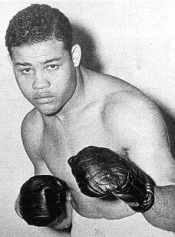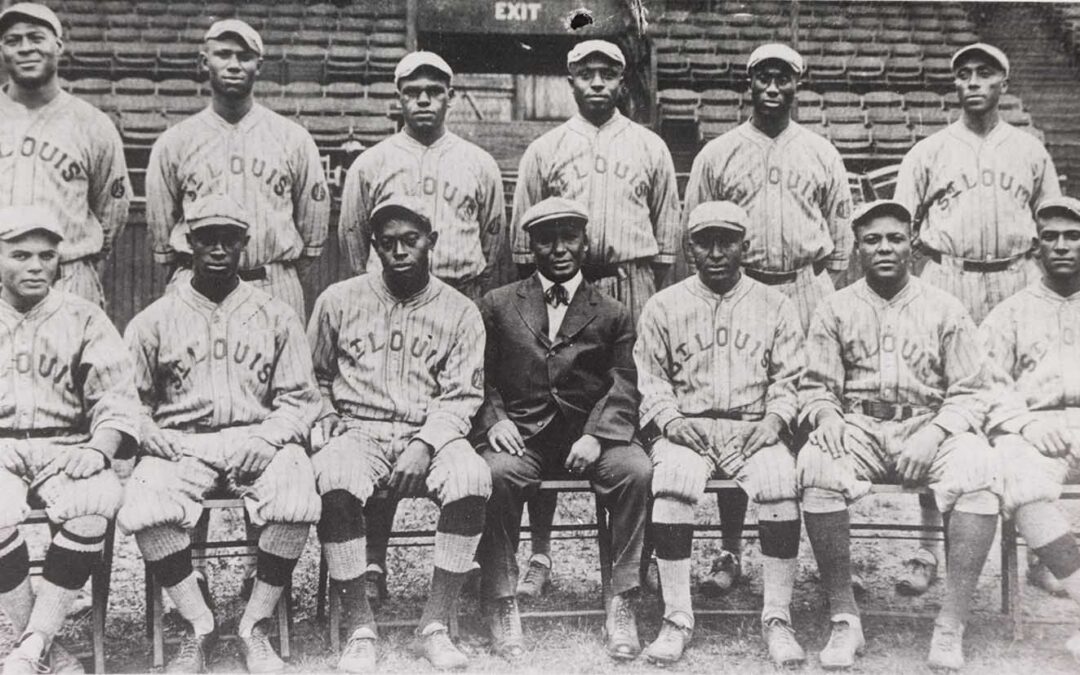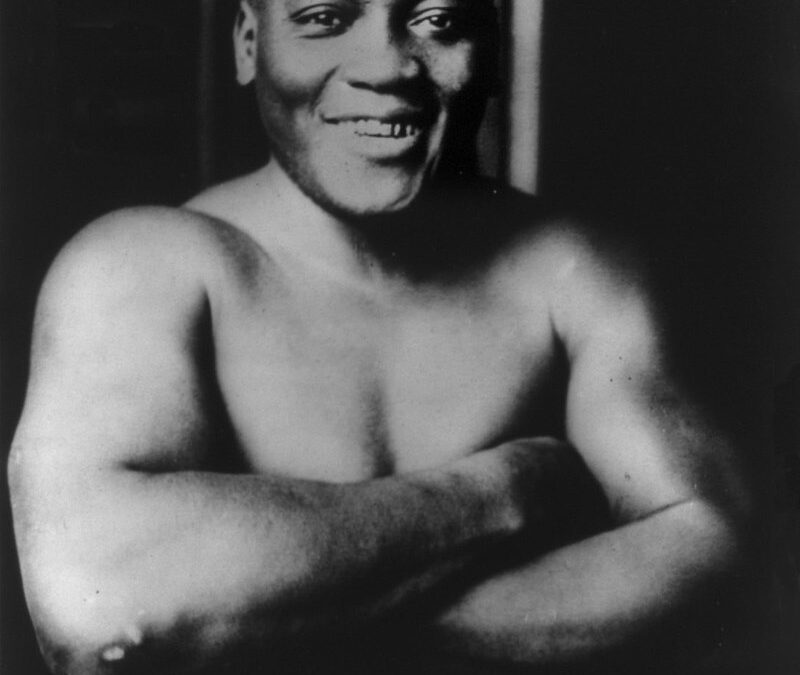Black History, Sports

Joe Louis
JOSEPH LOUIS BARROW, also called THE BROWN BOMBER (b. May 13, 1914, Lafayette, Ala., U.S.–d. April 12, 1981, Las Vegas, Nev.), American boxer who was world heavyweight champion from June 22, 1937, when he knocked out James J. Braddock in eight rounds in Chicago, until March 1, 1949, when he retired undefeated.
During his reign, the longest in the history of the heavyweight division, he successfully defended the title 25 times, scoring 21 knockouts. His service in the U.S. Army during World War II no doubt prevented him from defending his title many more times. (more…)
Sports
1903 – 1976
Hubbard won the long jump at the 1924 Olympics, becoming the first black athlete to win an Olympic gold medal in an individual event; set the long jump world record in 1925 (25-103/4) and tied the 100-yard dash record (9.6) in 1926.
Sports
The youngest (18) and first minority to win U.S. Amateur in 1994, won it again in ’95 and ’96; turned pro in Sept. of ’96 and won the fifth event he entered, the Las Vegas Invitational; in first full year on the tour, he won 6 of 25 events and broke the single season money record; won 1997 Masters by a record 18 under par and 13 stroke margin of victory; won second major at 1999 PGA Championship; in 2000 won the U.S. Open at Pebble Beach by a record 15 strokes, the British Open by 8 strokes and the PGA Championship in a playoff; one of only five players to win all four Grand Slam titles (others are Hogan, Nicklaus, Player and Sarazen); held all four Major titles simultaneously after his win at 2001 Masters; is already the all-time career money leader on the PGA Tour.

Sports
Any of the associations of teams of African-American baseball players active largely between 1920 and the late 1940s, when black players were at last contracted to play major and minor league baseball. The principal Negro leagues were the Negro National League (1920-1931, 1933-48), the Eastern Colored League (1923-28), and the Negro American League (1937-1960). In 1932, with the other leagues disbanded, some Northern teams competed in the previously regional Negro Southern League.
Two black men, Welday and Moses “Fleet” Walker, who were brothers, played major league baseball for Toledo, Ohio, in the American Association in 1884; but this initial acceptance of integrated teams in professional baseball was short-lived. A handful of all-black teams played in early organized baseball, beginning in 1885 with the Cuban Giants, formed that year on Long Island, N.Y.; the team played exhibition games and, in 1889-91, represented three successive cities in three leagues. In the early 20th century new black teams were formed to play exhibition games against white teams or in short-lived black leagues.
In 1920 Andrew “Rube” Foster, owner of the Chicago American Giants, convinced the owners of seven other Northeastern and Midwestern teams to join him in forming the Negro National League. In most years the Negro National League consisted of eight teams. After the Eastern Colored League was formed in 1923, Negro World Series were held (1924-27; 1942-49); East-West All-Star games were played from 1933 into the 1950s. Initially the leagues were centred in cities such as Chicago, New York City, Detroit, St. Louis, and Kansas City, which had large and growing black populations as a result of the 20th-century northward black migration. The leagues struggled for survival during the Great Depression, though prosperity returned in the 1940s. Financial pressures dictated that different teams would often make up the leagues from year to year, and that some teams changed leagues over the years.
The Negro leagues played short seasons, compared with those of white major league teams. Some black players competed in Caribbean winter leagues during the off-season. The short season allowed teams time to barnstorm–that is, play exhibition games on tour. Thus the Kansas City Monarchs, for example, both barnstormed and belonged to the Negro National League in the 1920s. During 1931-36 the Monarchs, without a league affiliation, barnstormed from city to city, equipped with an innovative portable park-lighting system (introduced five years before the first white major league night game). In 1934 they crossed the United States in a series of exhibition games with the Homestead Grays. In 1937 the Monarchs joined the Negro American League.
The popular success of the Harlem Globetrotters in basketball inspired some Negro league teams, notably the Indianapolis Clowns, to provide comedy and other entertainment along with their baseball games. Some of these teams were criticized, however, for presenting demeaning images of blacks; the Zulu Cannibal Giants, for example, wore grass skirts and face paint and played baseball barefoot.
The most noted Negro league teams included the Homestead Grays, based in Pittsburgh, Pa., and Washington, D.C., who won nine pennants during 1937-45 and included the great hitters Josh Gibson (catcher), James “Cool Papa” Bell (outfield), and Buck Leonard (first base). In the mid-1930s the Pittsburgh Crawfords included five future Baseball Hall of Fame members: Gibson; Bell; manager Oscar Charleston; clutch-hitting third baseman William Julius “Judy” Johnson; and the great fastball pitcher Satchel Paige. After the Crawfords won the 1936 pennant, the team’s stars were hired away to play on Rafael Trujillo’s Dominican Republic team, beginning the Crawfords’ decline. The Kansas City Monarchs won four full-season Negro National League championships and seven Negro American League championships. Among the most famous black teams were the all-star units formed annually by Paige to compete in exhibition games with white major league all-stars.
The beginning of the decline of the Negro leagues was in 1945, when the Monarchs’ rookie shortstop Jackie Robinson was signed by the Brooklyn Dodgers organization. Among the other black players who first integrated the major leagues, few were, like Paige, long-established stars. Most were younger men–such as pitcher Don Newcombe and outfielder Larry Doby (Newark Eagles), catcher Roy Campanella (Baltimore Elite Giants), and outfielders Minnie Minoso (New York Cubans), Willie Mays (Birmingham Black Barons), and Hank Aaron (Indianapolis Clowns)–who went on to spend most of their careers as major league stars.

Sports
byname of JOHN ARTHUR JOHNSON (b. March 31, 1878, Galveston, Texas, U.S.–d. June 10, 1946, Raleigh, N.C.), first black to hold the heavyweight boxing championship of the world.
Johnson fought professionally from 1897 to 1928 and engaged in exhibition matches as late as 1945. He won the title by knocking out champion Tommy Burns in Sydney, Dec. 26, 1908, and lost it on a knockout by Jess Willard in 26 rounds in Havana, April 5, 1915.
Until his fight with Burns, discrimination limited Johnson’s opportunities and purses. When he became champion, a hue and cry for a “Great White Hope” produced numerous opponents.
At the height of his career Johnson was excoriated by the press for having twice married white women, and he further offended white supremacists by knocking out former champion James J. Jeffries, who was induced to come out of retirement as a “Great White Hope.” In connection with one of his marriages, Johnson was convicted in 1912 of violating the Mann Act in transporting his wife across state lines before their marriage. He was sentenced to a year in prison and was released on bond, pending appeal. Disguised as a member of a black baseball team, he fled to Canada, made his way to Europe, and was a fugitive for seven years.
He defended the championship three times in Paris before agreeing to fight Willard in Cuba. Some observers thought that Johnson, mistakenly believing that the charge against him would be dropped if he yielded the championship to a white man, deliberately lost to Willard. From 1897 to 1928, Johnson had 114 bouts, winning 80, 45 by knockouts.
In 1920 Johnson surrendered to U.S. marshals and served his sentence, fighting in several bouts within the federal prison at Leavenworth, Kan. After his release he fought occasionally and appeared in vaudeville and carnival acts, appearing finally with a trained flea act. He wrote two books of memoirs, Mes Combats (in French, 1914) and Jack Johnson in the Ring and Out (1927; reprinted 1975). He died in an automobile accident.
Sports
In 1961 Charlie Sifford became the first Black pro to receive a PGA card after the organization abolished it’s ‘Whites Only’ rule. He later won the Hartford Open in 1967 with a final-round 64, becoming the first black player to win a PGA event; won the PGA Seniors Championship in 1975; amassed over $1 million in career earnings; published his autobiography ?Just Let Me Play? in 1992.


